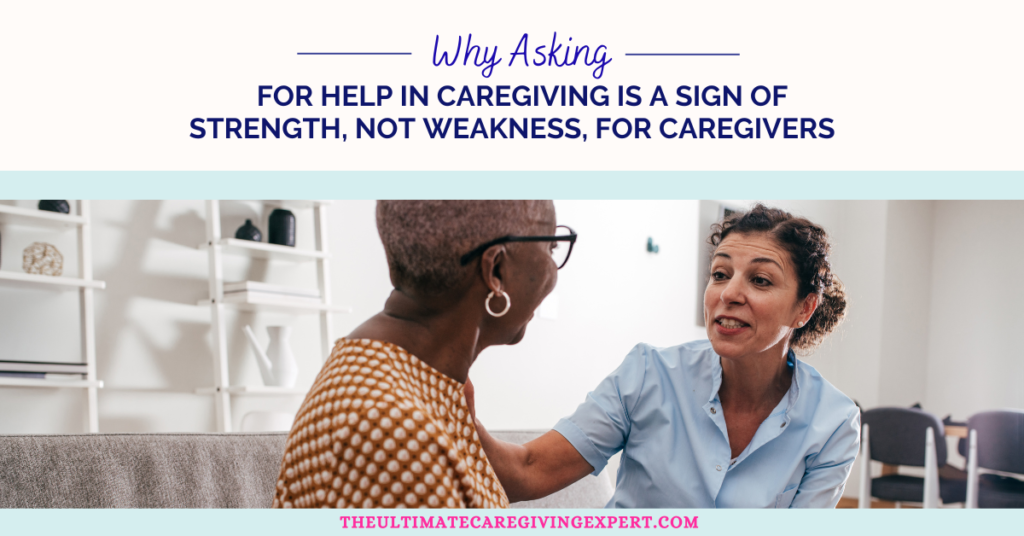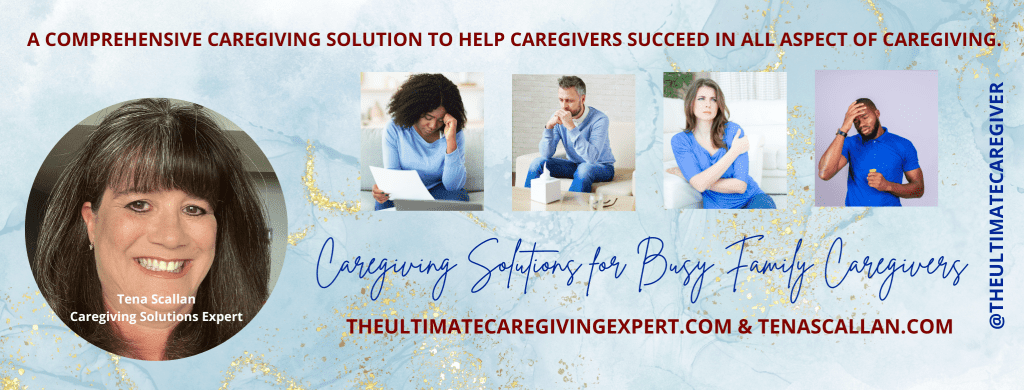Asking for Help in Caregiving Is a Sign of Strength, Not Weakness
Family caregiving is an incredibly noble and rewarding endeavor, but it comes with its own set of challenges and pressures. For many caregivers, asking for help can feel like admitting defeat. However, it is crucial to understand that seeking assistance is not a sign of weakness but a demonstration of strength and wisdom. In this blog post, we will explore why asking for help in caregiving is vital and how it benefits both the caregiver and their loved ones.
Understanding the Stigma: Why Caregivers Hesitate to Ask for Help
Asking for help in caregiving often carries a stigma that makes many caregivers feel they should handle everything on their own. This can lead to feelings of guilt and inadequacy. It’s important to understand why this stigma exists and how it affects caregivers.
Cultural expectations are a significant factor. Society often dictates that caregivers, especially family members, should manage all responsibilities without external assistance. Additionally, many caregivers set high standards for themselves, believing they must be entirely self-sufficient. Fear of judgment from others further discourages them from seeking the help they need.
- Cultural Expectations: Societal norms often dictate that caregivers, especially family members, should manage all responsibilities without external assistance.
- Self-Imposed Standards: Many caregivers set high standards for themselves, believing they must be entirely self-sufficient to be effective.
- Fear of Judgment: Concerns about being judged by others can prevent caregivers from seeking necessary help.
The Emotional Toll: How Overburdening Affects Caregivers
Moreover, the emotional toll of caregiving without support can be overwhelming. This can lead to burnout, stress, and mental health issues, which ultimately impact the quality of care provided. The emotional toll of caregiving without support can be overwhelming and profound. Many caregivers face burnout, chronic stress, and various mental health issues when they try to manage all responsibilities on their own. These emotional challenges not only affect the caregivers’ well-being but also significantly impact the quality of care they can provide to their loved ones. Without adequate support, caregivers may find themselves physically and emotionally drained, which can lead to diminished caregiving abilities and overall negative outcomes for both the caregiver and the care recipient.
- Burnout Prevention: By asking for help, caregivers can avoid the severe exhaustion that comes with prolonged, unassisted caregiving.
- Mental Health Maintenance: Sharing responsibilities helps reduce stress and anxiety, promoting better mental health.
- Improved Relationships: When caregivers are less stressed, they can foster stronger, more positive relationships with their loved ones.
Practical Benefits: Enhancing Care Quality Through Assistance
Beyond the emotional relief it provides, seeking help in caregiving offers substantial practical benefits. When caregivers share their responsibilities, they can concentrate on the most critical tasks, ensuring their loved ones receive comprehensive and high-quality support. Assistance from others allows for more specialized care tailored to the specific needs of the care recipient, reduces the risk of neglect or oversight, and helps maintain consistency in caregiving routines. This collaborative approach ensures that all aspects of care are addressed effectively, enhancing the overall well-being of both the caregiver and their loved one.
- Specialized Care: Professional caregivers or specialized services can provide expert care tailored to specific needs.
- Consistency: Shared caregiving responsibilities ensure continuity of care, reducing the risk of neglect or oversight.
- Resource Utilization: Utilizing community resources, such as support groups and respite care services, can enhance the overall caregiving experience.
Strength in Numbers: Building a Support Network
Building a robust support network is essential for caregivers. By drawing strength from a community of friends, family, and professionals, caregivers can access both practical help and emotional support. This network ensures that caregivers are not alone in their journey, providing them with the resources and assistance needed to effectively care for their loved ones. A strong support system can help distribute the caregiving workload, offer respite when needed, and provide a sense of camaraderie and understanding.
- Family Involvement: Encouraging family members to participate in caregiving can distribute responsibilities and lighten the load.
- Professional Support: Engaging home health aides, therapists, or respite care providers can offer specialized assistance.
- Community Resources: Leveraging local and online support groups can provide a platform for sharing experiences and advice.
Balancing Self-Care: Prioritizing the Caregiver’s Well-being
Equally important is the necessity of self-care for caregivers. Taking care of oneself is crucial to being an effective caregiver in the long run. Prioritizing personal well-being helps caregivers maintain their physical and mental health, ensuring they have the strength and resilience to provide sustained, high-quality care for their loved ones. This balance prevents burnout and allows caregivers to be more present and attentive in their caregiving roles.
- Time for Self: Allocating time for personal hobbies and relaxation is essential for maintaining mental and physical health.
- Health Maintenance: Regular medical check-ups and a balanced lifestyle can prevent health issues for caregivers.
- Mental Health Support: Access to counseling or therapy can help caregivers manage stress and emotional challenges.
Overcoming Guilt: Embracing the Strength in Asking for Help
Finally, overcoming the guilt associated with asking for help is vital for caregivers. It’s crucial for caregivers to recognize that seeking assistance is not a sign of weakness but a responsible and courageous act. By reaching out for support, caregivers can better fulfill their caregiving responsibilities while maintaining their own well-being. Embracing the strength to ask for help allows caregivers to create a more sustainable and supportive caregiving environment for themselves and their loved ones.
- Changing Perspectives: Understanding that asking for help is beneficial for all parties involved can alleviate feelings of guilt.
- Empowerment: Realizing the strength it takes to seek support can empower caregivers to make better decisions.
- Positive Impact: Embracing help can lead to a more balanced life and better caregiving outcomes.
Conclusion: Empowering Caregivers to Seek Help
In conclusion, asking for help in caregiving is a powerful step toward providing the best care for loved ones while maintaining personal well-being. It is a sign of strength, not weakness, and it opens the door to better resources, support, and overall health. Caregiving is a demanding role that no one should have to face alone. By seeking help, caregivers can ensure they are equipped to provide high-quality care without compromising their health and happiness. If you are a caregiver, remember: that reaching out for help is one of the bravest and most beneficial decisions you can make. If you are a caregiver feeling overwhelmed, take the first step today, and let’s talk. Explore our resources on caregiving support and connect with local services that can provide the assistance you need. Embrace the strength in asking for help and ensure the best care for your loved ones and yourself. For more insights on managing caregiving responsibilities and maintaining well-being, visit our caregiver resources page.





